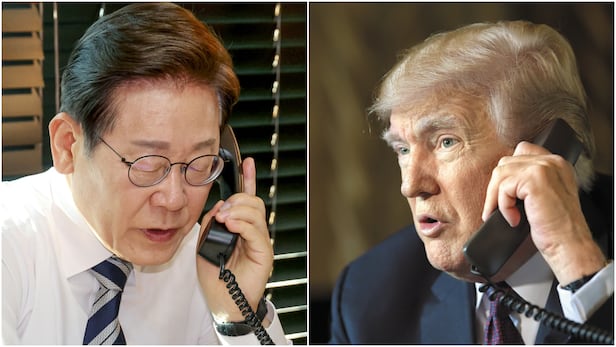President Lee Jae-myung Holds First Call with Donald Trump

On the night of June 6, 2025, President Lee Jae-myung of South Korea engaged in his first phone conversation with U.S. President Donald Trump, just two days after taking office. The call lasted approximately 20 minutes, during which Trump congratulated Lee on his election victory. Lee expressed gratitude and emphasized the significance of the South Korea-U.S. alliance as a cornerstone of the nation's foreign policy.
According to the presidential office, both leaders praised each other's leadership and agreed to work closely to enhance the South Korea-U.S. alliance. They also discussed the need for a swift resolution to tariff negotiations, aiming for a mutually satisfactory agreement. The office noted that Trump invited Lee to visit the United States, to which Lee responded by expressing a desire for frequent meetings to discuss matters of mutual interest.
The conversation was described as friendly and informal, with both presidents sharing anecdotes from their respective election campaigns. They particularly connected over their experiences with political threats and challenges, acknowledging that overcoming such difficulties can lead to stronger leadership.
Additionally, the two presidents discussed their golf skills and expressed interest in playing a round together to strengthen their alliance. Lee shared a story about receiving a signed Trump hat, which piqued Trump's interest, and he expressed eagerness to meet Lee soon.
This call occurred about a day later than previous presidential transitions, where earlier presidents had communicated with their U.S. counterparts on the day of their election or inauguration. Lee's upcoming meeting with Trump could happen as soon as next week if he attends the G7 summit in Canada from June 15-17, where discussions on pressing issues, including tariffs, are expected to take place.
The urgency of tariff negotiations is heightened as Trump has indicated high tariffs on automobiles and steel products, set to take effect on July 8. The South Korean government aims to reduce or eliminate the current 25% tariff rate, necessitating direct communication between the two leaders. Furthermore, the NATO summit in The Hague on June 24-25 could also provide an opportunity for a meeting between Lee and Trump.
In contrast, Japan's Prime Minister Shigeru Ishiba is already strategizing to meet with Trump to negotiate tariff issues, potentially visiting Washington, D.C. on Trump's birthday, June 14. This proactive approach highlights the competitive nature of diplomatic relations in the region, as both South Korea and Japan seek to address similar economic challenges with the U.S.
Lee's participation in the G7 and NATO summits will serve as a significant indicator of his administration's foreign policy direction, particularly in relation to the U.S. and China. While Lee advocates for improved relations with China, the U.S. has expressed concerns about China's influence in global democracy, emphasizing the importance of the South Korea-U.S. alliance.
What do you think?
0 reactions





